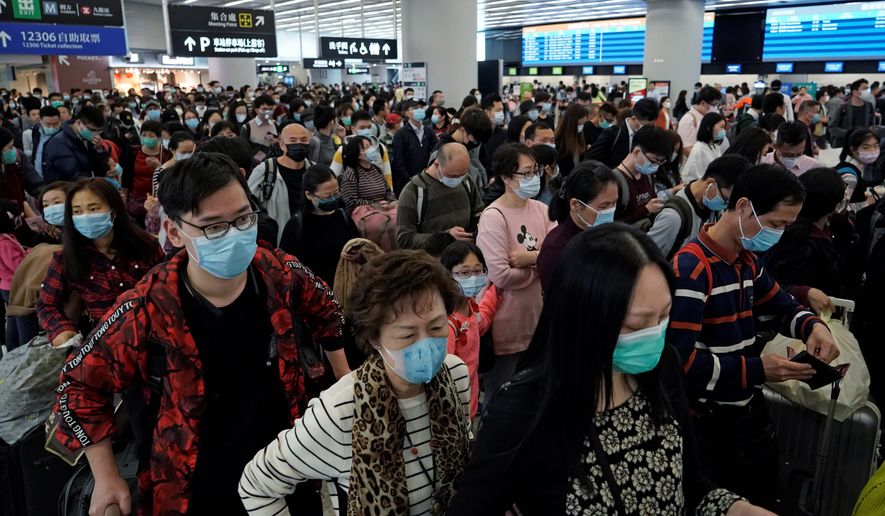China raced Friday to lock down at least six cities with a combined population of more than 20.5 million as officials try to contain a deadly viral outbreak that has sickened more than 800, claimed 25 lives and spread to several other countries.
All public transportation, flights, ferries, and rail and bus services in the Chinese city of Wuhan, the epicenter of the coronavirus outbreak, were shut down and similar measures are being implemented in other cities in the Hubei province.
The affected cities will be under quarantine ahead of this weekend’s Chinese Lunar New Year, the nation’s biggest festival.
Dr. William Schaffner, an infectious disease specialist at Vanderbilt University, called China’s precautionary actions an “enormous public health experiment.”
“These are public actions that are huge, that are unprecedented. To try to at least semiquarantine major cities and how that will be administered and for how long remains to be seen,” he said.
“This is a very big deal,” Dr. Schaffner said. “We’ll see how well it works.”
The majority of coronavirus cases are in central China’s Hubei province, where Wuhan is located. Other cases have been reported in the U.S., Thailand, Japan, South Korea, Singapore, Vietnam and Hong Kong.
Meanwhile, the World Health Organization on Thursday ended a two-day emergency meeting on the outbreak. It decided not to declare the coronavirus a global health emergency, noting the early stage of the outbreak, the limited cases abroad and the measures being taken to contain the illness.
Dr. Eric Toner, a senior scientist at Johns Hopkins University, disagreed with WHO’s decision.
“I think they should have declared a public health emergency of international concern today, but they decided not to,” Dr. Toner said. “I suspect they will reverse that decision in the near future.”
This week, the Centers for Disease Control and Prevention confirmed the first U.S. case in a man who had traveled indirectly from Wuhan to Seattle. The CDC said the risk of the virus to Americans is low, even though it expects more cases as the outbreak continues.
The CDC is screening passengers from China at international airports in New York, San Francisco and Los Angeles, and will start screenings in Atlanta and Chicago.
China first reported the mysterious pneumona-like outbreak last month and linked the virus to a large seafood market in Wuhan that reportedly illegally sold wild animals. The animal source responsible for the outbreak is unknown.
Health officials this week determined that the coronavirus is being transmitted between humans.
While there are reports of 25 deaths from the coronavirus in China, Dr. Schaffner said it’s not like the SARS (severe acute respiratory syndrome) and MERS (Middle East respiratory syndrome) outbreaks. The SARS outbreak of 2002 and 2003 killed more than 700, and had been declared a worldwide health emergency.
Lawrence Gostin, a professor of global health law at Georgetown University, disagreed with WHO’s decision not to declare a global emergency.
“The criteria for a global health emergency have been met. There is a novel virus, spreading widely including major international spread, and a threat to travel and trade,” he said. “I expect the crisis to escalate as cases will mount in China, Asia, and globally including North America.”
Mr. Gostin also expressed doubts about quarantine effort in the sprawling cities in central China, saying it likely “will drive the epidemic underground, provoking fear and panic.”
“The most important thing in a public health crisis is to stay calm and to gain the trust of the people,” he said.
Dr. Toner said people seeking to protect themselves from the coronavirus should wash their hands, cover their mouths when they cough, avoid sick individuals and stay home if sick.
• Shen Wu Tan can be reached at stan@washingtontimes.com.




Please read our comment policy before commenting.